There are four types of business ownership possible in Canada: as an entrepreneur or small business owner, you can choose to set up a sole proprietorship, a partnership, a corporation or a cooperative. Choosing the ownership type most appropriate for your business will determine how it is organized, how revenue and expenses are handled, and how you file your corporate income tax. At Lift Legal, we recommend weighing the pros and cons of each model before deciding on the legal structure of your new business venture.
Also sometimes known as a limited company, a corporation is a legal entity separate from its owners and shareholders. As such, no member of the corporation can be held personally responsible for a company’s debts, obligations or acts. Similarly, shareholders are responsible only for the unpaid portion of any shares they own.
You may therefore wish to consider setting up as a corporation if your business involves potential liability that could seriously damage your personal finances.
Advantages
- Easier financing
You may want to consider incorporating if you are looking for financing. There is a common perception among lending institutions that businesses that take the time to incorporate are more stable and serious than those who do not. - Eligibility for government funding
As a corporation, your business may be eligible for federal funding and provincial grants to help you start or expand. There is also funding available for Indigenous entrepreneurs. - Small business deduction
Corporations may be eligible to claim the Small Business Deduction when filing Canadian corporate income tax with the Canada Revenue Agency (CRA). - Lifetime Capital Gains Exemption (LCGE)
Unless you qualify for the Lifetime Capital Gains Exemption (LCGE), you are taxed on the sale of shares in your business. Thus, if you sell shares of your corporation for profit, only 50 per cent is taxable, and you can receive a substantial part of your gain on a lifetime basis tax-free. There are complex requirements for eligibility, and we urge you to speak with an accountant and/or lawyer before selling shares or changing your business structure. The team at Lift Legal can help you determine whether you meet all the requirements for this exemption. If you meet the conditions, you can sell your business shares for a gain and claim the exemption on your next tax return.
To qualify for the LCGE, your company must operate as a small business corporation at the time of the sale, and it must be a share sale of your business. This means that sole proprietorships and partnerships do not qualify.
Disadvantages
- Incorporation at the provincial and federal levels
Corporations are expensive to set up an operate, particularly if you are looking to incorporate both provincially and federally: each is a separate process. Federal incorporation allows you to operate under your corporate name throughout Canada, whereas provincial incorporation lets you operate under your corporate name in a particular province or territory. - Contracting to other businesses
Certain businesses, particularly larger corporations, will only hire incorporated contractors. - Taxation
Corporations are costly to operate. This is because they must file annual income tax returns both with the Canada Revenue Agency (CRA) and with Alberta’s Ministry of Treasury Board and Finance. Business owners must also file two separate income tax returns: a T1 Income Tax Return, as well as a T2 Corporation Income Tax Return.
Whether you choose to set up a sole proprietorship, a partnership, a corporation or a cooperative, the legal form of business ownership you choose is an important decision. Your business’s legal structure will affect not only your setup, administrative and operational costs, but also your tax planning and possibly also your succession planning. It is something to decide even before deciding on a business name.
This is not to say that your business’s legal structure can’t change as your circumstances change. Choose the form of ownership appropriate to your present situation, and review it as your business grows. Trust the Lift Legal team to meet with you to provide the guidance and answers you need.
Contact us today to arrange your consultation.
Disclaimer:
The information on this blog and website is provided by Lift Legal for educational purposes only. It is intended to give readers a general understanding of the law, not to provide specific legal advice. Information contained in these pages should not be used in place of competent legal advice from a licensed, practising lawyer in Alberta. Furthermore, by using this blog and website, you understand that no lawyer-client relationship exists between you and Lift Legal.













